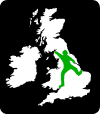
- The most recent issue to be published was 133
- For further information, please see Publishing/Despatch Schedule
- Database last updated on Sun, 25 Jan 2026 16:24:22 +0000
- Online access is currently available for all issues. Some of
the older issues are bit-map scans rather than digital copies.
journal scans.
- Online voting for CREG articles was withdrawn in June 2022. For info see
Voting for CREG articles
Contents of journal 118
June 2022
This page may take a few
seconds to load. Please wait ...
- CREG Journal 118 (0-24)
(PDF 6.2MB)
  Individual articles may be available below Individual articles may be available below
- This issue has a cover date of June 2022 and was published on 8 June 2022.
Corrections to the original paper edition: In 'The Circle of Least Confusion' in the appendix, on page 17, "j117" should read "j118". Also, equation 1 on page 17 is incorrect, although the rest of the equations are OK. In 'Position Encoder Uses Single-Track Gray Code: Part 2', appendix 2 on page 22 contains some errors. These corrections have been made to the online editions -
- Front Cover (1)
(PDF 1.8MB)

- Rob Gill observing fluorescence whilst setting up to photograph phosphorescence in KMC Valley Entrance during the recent CREG Field Meeting. Image: Chris Hunter
-
- Contents (2)
(PDF 371KB)

- List of contents and masthead information.
-
- News and Notes (2) For download see previous item
- Proposed Autumn 2022 Field Meeting, Getting Involved, Rob Gill.
-
- The Pease Ultraphone - an SWT for Extreme Conditions (3-7)
(PDF 1.4MB)

- Brian Pease describes his design for this new single-wire telephone, which was designed for very long-range operation, even in levels of high noise when the line is not in good condition.
-
- We Hear (8)
(PDF 409KB)

- Roundup of news and events: Mike Bedford brings us the latest to impact the world of cave radio and electronics. RMF-Owl: Drones to the Rescue, Introducing the Nicola 4, High Flying Rescue.
-
- Spotlight on Luminescence: why Things Glow in the Dark (9-11)
(PDF 482KB)

- To support the recent interest in underground fluorescence and phosphorescence photography, Mike Bedford provides some simple background information about the physics behind these phenomena.
-
- Letter to the Editor (12)
(PDF 272KB)

- Hunting Phosphorescence, Rob Gill; How Not to Lay a Telephone Cable, Chris Ross; Journal Back Issues, David Gibson.
-
- Photographing Phosphorescence (13-15)
(PDF 515KB)

- Some minerals fluoresce when exposed to ultraviolet light. Some also phosphoresce, emitting light immediately following their exposure to UV. Rob Gill has been trying to photograph this transient phenomenon, using a Raspberry Pi-based sequencer, with both benchtop samples and with calcite formations in Yorkshire caves.
-
- The Circle of Least Confusion (16-17)
(PDF 290KB)

- David Gibson describes a term in optics and photography that is used to derive the range of distances – the depth of field – over which a subject remains in good focus. This does not, of itself, require restating here, although there are some circumstances, such as the construction of stereoscopic and stacked-focus images, where a recap is useful. Additionally, there is a modification to the standard formula that extends its use to small-format digital cameras.
Corrections to the original paper edition: In the appendix, on page 17, "j117" should read "j118". Also, equation 1 on page 17 is incorrect, although the rest of the equations are OK. These corrections have been made to the online editions -
- The Circle of Least Confusion: Appendix (A1-A2)
(PDF 250KB)

- This appendix to the article in CREGJ 118 by David Gibson provides the derivation of the Depth of Field formula and a further discussion on modifying the formula to deal with digital cameras with varying image formats. This document was revised and updated to version 4 on 5 October 2022.
-
- Building Blocks (18)
(PDF 246KB)

- Minimising power consumption in processor-based circuits, by Tony Haigh.
-
- Position Encoder Uses Single-Track Gray Code: Part 2 (19-22)
(PDF 382KB)

- There are many examples, in electronic equipment design, where it is necessary to measure a linear or rotary position, which is often achieved using an optical or magnetic encoder. Simple encoders only detect changes in relative position; multi-track encoders can measure absolute position but, as David Gibson explains, a single-track encoder can, under the right conditions, also encode absolute position. An online demonstration program accompanies this article at bcra.org.uk/cregj/more/j118.
Corrections to the original paper edition: Appendix 2 on page 22 contains some errors. These corrections have been made to the online editions -
- Cyclic Single-Track Gray Codes – Demo for CREGJ 118 (webpage)
- This online demonstration program by David Gibson accompanies the above article. Please note that this supplement is in preparation and will be available in October 2022, hopefully.
-
- The Return of the CREG Field Meeting (23-24)
(PDF 1.6MB)

- After a hiatus of almost two years, as a result of the Covid pandemic, CREG got together for a field meeting at the end of May 2022. Interesting equipment was put through its paces, as Mike Bedford reports.
-

|

View Contents:

BCRA is a UK registered charity and is a constituent body of
the British Caving Association,
undertaking charitable activities on behalf of the BCA.
BCRA publishes a range of periodicals and books.
Click here for further information.
|
Searching
To Search our pages using Google, type a search
string in the box at the top of the page and hit your Return key
You can also search our publications catalogue at the British Caving Library
The CREG Journal Search Engine is a new, powerful search engine which will, sometime, be extended
to cover Cave & Karst Science. We have a keyword search facility on our Cave Science Indexes pages but this may be rather out-of-date.
|
For staff use: Link to Database
Show/Hide
download figures next to each item (if available and non-zero; you might need to refresh page first). Counters last
reset on Thu 03-Jan-2019 17:29:28 +00:00. The figures are non-unique
click-throughs.
|









